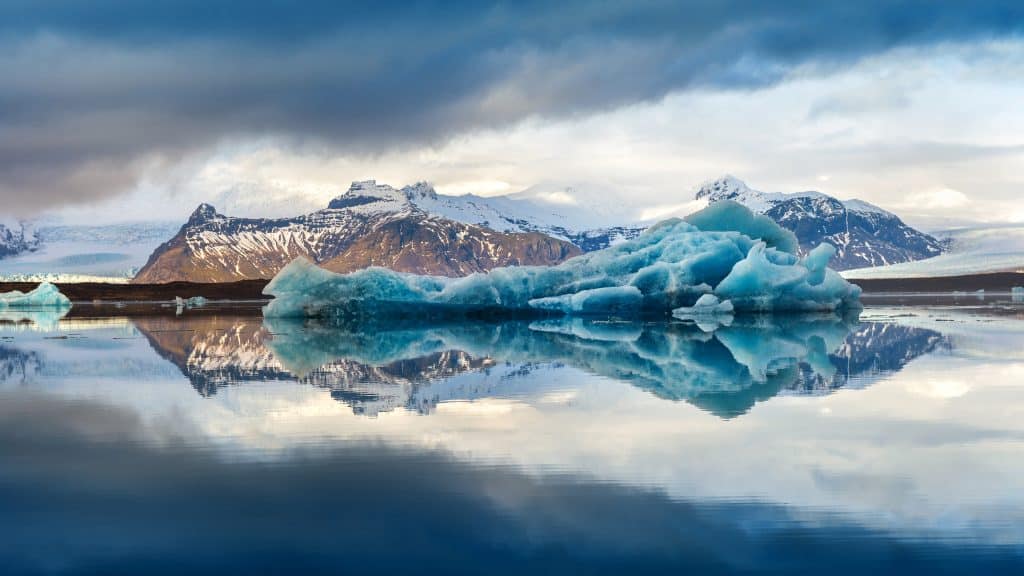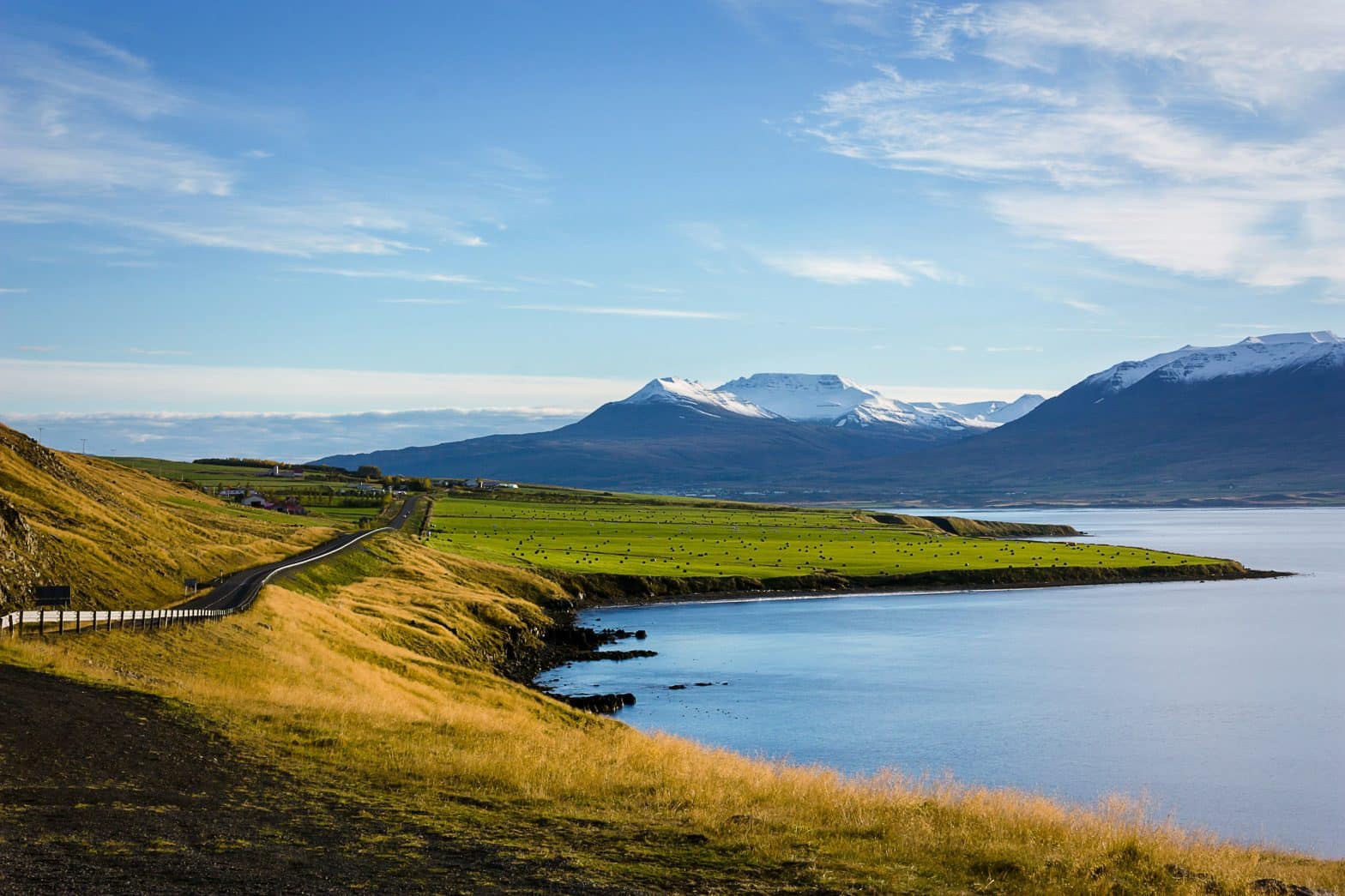Are you thinking about taking the plunge and moving to Iceland? Let’s face it, announcing that you are moving to Iceland always makes an impression with your surroundings.
This country fascinates with its unique landscapes where volcanoes and glaciers coexist, its northern lights and its hot springs. Reykjavik is, of course, the number one destination for expats in Iceland, with its ultra-cosmopolitan and dynamic capital city.
If you have questions about life there, the steps to take, potential challenges, the cost of living or job opportunities, that’s normal, and we have decided to answer them. Here is a comprehensive and detailed guide to help you make a success of your relocation to Iceland!
The advantages and disadvantages of living in Iceland
Advantages
- Unique flora and fauna
- The country is considered to be the safest in the world, ranking first in the Global Peace Index for the 14th consecutive year
- Living in a country that is considered one of the happiest in the world! According to the latest World Happiness Report, Iceland ranks third among the countries where people are happiest
- A dynamic job market, with an employment rate of 80% (higher than the OECD average of 70.3%)
- A significant historical heritage and a very rich culture, particularly with Norse mythology and Icelandic folklore
- A relatively young country, where the average age of residents is around 38
Disadvantages
- The Icelandic language is quite difficult to learn for both French and English speakers. However, it should be noted that the majority of inhabitants speak English well
- The weather is very often unstable
- It is light all the time for part of the year… between May and August, the sun never completely sets, which can be surprising
- The cost of living in Iceland is one of the highest in Europe
Administrative procedures for moving to Iceland
Iceland is not part of the European Union, but it belongs to the Schengen area.
For EU nationals:
EU citizens, like all citizens of an EU member country, can reside in the country for up to 90 days without a visa.
Beyond this period, an application for long-term residence must be submitted to the national registry office. The procedure can be completed online. Several supporting documents are required, including:
- A copy of your valid passport
- A recent passport photo
- A document relating to your professional situation
- Proof of residence
- Proof of marital status
Applications are usually processed within 10 working days.
For third-country nationals:
A visa is required for both short-term and long-term stays. To apply, visit the Immigration Department website and go to the relevant section: https://island.is/en/o/directorate-of-immigration
Once you have obtained your long-term residence permit, you will automatically be assigned a kennitala. This is a unique 10-digit personal code, similar to a National Insurance number in the UK.
Once you have it, you can:
- Open a bank account
- Get a phone line
- Register your accommodation
- Be recognised as a tax resident in Iceland
Finding accommodation in Iceland
The Icelandic property market is quite tight, especially in Reykjavik. Supply is struggling to keep up with demand, which is driving up house prices. To rent, a small flat in the city centre costs an average of €1,900 per month. If you want to buy, expect to pay around €6,500 per square metre.
To find the ideal place to live, you can visit Iceland before you move or search online using classified ad websites such as:
You can also use a local estate agent, but this will obviously involve additional costs.
The cost of living in Iceland
Iceland is one of the most expensive countries in Europe, just behind Switzerland.
- If you plan to live alone in Iceland, you will need an average budget of €3,100 per month, including rent.
- If you are planning to move with your family, bear in mind that a family of four needs €7,600 per month to live comfortably in the country.
This high cost of living is due to several factors, including Iceland’s geographical isolation. A large proportion of products are imported, which tends to increase the cost of basic foodstuffs and raw materials.
The population is also small, with fewer than 400,000 inhabitants. This means that the market is limited, which pushes shops and businesses to increase the price of their services to be more profitable.
If you are interested in this topic, check out our comprehensive guide to the cost of living in Iceland, where we detail each expense.
How much do you need to earn to live comfortably in Iceland?
The average monthly salary in Iceland is around 902,000 Icelandic kronur, or €6,300.
This allows a single person to live comfortably in the country with a standard lifestyle. A family will, of course, need a higher income.
Getting around
Buses are the main form of public transport in the country, particularly the comprehensive network operated by the national company, Strætó. You can easily plan your journeys on their website: https://www.straeto.is/en
We also recommend downloading the Klappið app to buy tickets and organise your journeys more easily: https://www.klappid.is/en/buy-tickets/klappid-app
For long-distance travel, flights are the most convenient option, particularly those offered by Icelandair.

You can also travel by car, which is the ideal way to get out of the city at the weekend or to explore Iceland’s regions. However, be aware that the road network can sometimes be … unusual!
- Signage is limited,
- And not all roads are paved, so there may be potholes and gravel.
Living in Iceland like a true Icelander
With your family
Iceland is a family-friendly country with a strong education system, a high level of safety and many outdoor activities.
Most schools are public, although there are private schools, particularly in Reykjavik. Here is a ranking of the best schools in the country offering bilingual education (Icelandic and English):
- Hamrahlid College
- The International School of Iceland
- The International Department of Landakotskoli
For parents of young children, there is a childcare service called “dagforeldri” or “dagmamma”, meaning “day parents”. It is also worth noting that all childcare services are subsidised by the state.
At the swimming pool
If there’s one thing you can’t miss in Icelandic social life, it’s the swimming pool! All citizens love to relax almost daily in “sundlaug” (swimming pools) or in natural hot springs.
You can find all the public swimming pools available in Reykjavik by neighbourhood on this official website: https://reykjavik.is/en/swimming-pools
Dealing with unpredictable weather
As you will have realised, the weather in Iceland is unpredictable. The island has a harsh climate that can change several times in the course of a single day.
The average temperature in summer rarely exceeds 20°C and averages between -5 and 5°C in winter.
We recommend that you always have a backup plan for your outings in case the weather changes suddenly!
Work and taxes
The Icelandic job market is fairly dynamic, with a low unemployment rate of 2.8% in June 2025. Some sectors recruit more skilled expats than others, including:
- Healthcare
- Construction
- Finance
- Energy
- New technologies
- Tourism
Officially, the working week is generally 40 hours spread over 5 days. However, since 2015, many Icelandic companies have been experimenting with a 4-day week, with 36 to 37 hours of work.
With regard to taxation, permanent residents are taxed on their entire gross income according to the following tax brackets:
- 31.49% for income below ISK 472,005 per month (€3,300)
- 37.99% for income between ISK 472,005 and ISK 1,325,127 per month (€3,300 and €9,253)
- 46.29% for income above ISK 1,325,127 per month (€9,253)
The healthcare system
Iceland’s healthcare system is based on universal coverage. In practical terms, all residents aged over 6 months are covered by Icelandic health insurance, known as “Sjukratryggingar Íslands”. This covers some or all of the following healthcare services:
- Hospitalisation
- Maternity care
- Medical consultations
- Radiological examinations
- Medical treatment
- Etc.
Medical services are provided by public or private institutions. Among the best in the country are:
- Landspítali, the university hospital in Reykjavik
- City Hospital in Reykjavik
- Akureyri Hospital, the regional hospital in Akureyri
In addition to public health insurance, some residents choose to take out private health insurance. This supplements their coverage by compensating for certain gaps (waiting times, care not covered, etc.).
As an expat, you can also turn to international private health insurance, which offers several advantages, including two key features:
- Coverage valid in Iceland, in your home country and everywhere else
- Access to care at the healthcare facility of your choice
At Foyer Global Health, a specialist in insurance for expatriates, our coverage also offers services designed for you:

✔️ 24/7 multilingual teleassistance
✔️ A second medical opinion from Teladoc Health
✔️ A “Get Fit” fitness programme
✔️ Mental health coaching, because moving abroad can sometimes be an emotionally intense experience
Our additional tips for a successful move to Iceland
- For a smooth move, look for accommodation remotely or make it your priority as soon as you arrive
- Taking Icelandic language classes as soon as possible is a must. You can even start with mobile language learning apps!
- Buy waterproof shoes, as the ground is damp almost everywhere…
- If you plan to rent or buy a new vehicle, opt for a 4×4, which is better suited to the country’s geography
- Avoid travelling alone in the West Fjords, as the roads can be difficult if you are not used to steep slopes
- Get used to driving with your headlights on, even during the day, to deal with fog!
